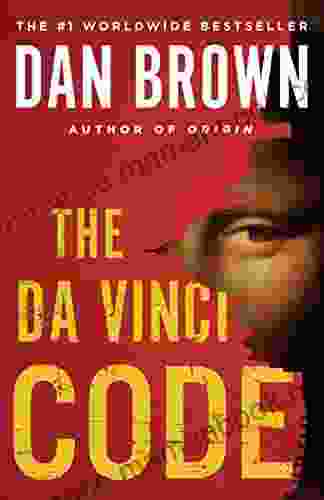Money Management in an Age of Financial Illiteracy: A Comprehensive Guide

5 out of 5
| Language | : | English |
| File size | : | 3951 KB |
| Text-to-Speech | : | Enabled |
| Screen Reader | : | Supported |
| Enhanced typesetting | : | Enabled |
| Word Wise | : | Enabled |
| Print length | : | 301 pages |
In an age where financial information is more accessible than ever, it's shocking that many people still struggle with money management. A recent study by the National Financial Educators Council found that only 34% of Americans are financially literate. This means that a majority of the population is ill-equipped to make sound financial decisions that can impact their lives significantly.
Financial illiteracy is a serious problem that can lead to a variety of negative consequences, including:
- High levels of debt
- Poor credit scores
- Difficulty saving for retirement
- Financial stress
- Bankruptcy
If you're one of the many people who struggle with money management, don't despair. There are many resources available to help you get your finances in order. This guide will provide you with a comprehensive overview of money management, including budgeting, saving, investing, and more. By following the tips in this guide, you can improve your financial literacy and take control of your finances.
Budgeting
The first step to money management is budgeting. A budget is a plan that outlines your income and expenses for a specific period of time, usually a month. By creating a budget, you can track your spending and identify areas where you can cut back.
There are many different budgeting methods available, so find one that works for you. Some popular budgeting methods include:
- The 50/30/20 rule: This rule suggests allocating 50% of your income to needs (such as housing, food, and transportation),30% to wants (such as entertainment and dining out),and 20% to savings and debt repayment.
- The zero-based budget: This method requires you to allocate every dollar of your income to a specific category. This can be a great way to ensure that you're not overspending.
- The envelope system: This method involves putting cash into different envelopes for different categories, such as groceries, entertainment, and savings. This can help you stay on track with your budget, as you can only spend the cash that you have in each envelope.
Once you've chosen a budgeting method, stick to it as closely as possible. The more disciplined you are with your budget, the more successful you'll be at managing your finances.
Saving
Once you've created a budget, the next step is to start saving money. Saving money is essential for financial security. It allows you to build an emergency fund, save for retirement, and reach other financial goals.
Here are some tips for saving money:
- Set realistic savings goals. Don't try to save too much money too quickly. Start with a small amount and gradually increase it as you become more comfortable with saving.
- Automate your savings. One of the best ways to save money is to set up automatic transfers from your checking account to your savings account. This way, you don't have to think about it - the money will be transferred automatically each month.
- Reduce your expenses. If you're struggling to save money, take a close look at your expenses and see where you can cut back. Maybe you can cook meals at home instead of eating out, or cancel a subscription you don't use.
- Make extra money. If you're able, try to make some extra money on the side to help you save more. You could start a part-time job, sell unwanted items, or start a blog or website.
Saving money isn't always easy, but it's worth it. The more money you save, the more financial security you'll have.
Investing
Once you've started saving money, you may want to consider investing. Investing is a way to grow your money over time. There are many different investment options available, so it's important to do your research and choose investments that are right for you.
Here are some of the most popular investment options:
- Stocks: Stocks are shares of ownership in a company. When you buy a stock, you're essentially buying a piece of that company. Stocks can be a good investment for long-term growth, but they can also be volatile in the short term.
- Bonds: Bonds are loans that you make to a company or government. When you buy a bond, you're essentially lending them money. Bonds are generally less risky than stocks, but they also offer lower returns.
- Mutual funds: Mutual funds are pools of money that are invested in a variety of stocks, bonds, and other investments. Mutual funds offer diversification, which can help to reduce risk.
- Exchange-traded funds (ETFs): ETFs are baskets of stocks or bonds that trade on exchanges like stocks. ETFs offer diversification and can be a good way to invest in a specific sector or industry.
Investing can be a great way to grow your money, but it's important to remember that all investments come with some degree of risk. Before you invest, be sure to understand the risks involved and invest only what you can afford to lose.
Other money management tips
In addition to budgeting, saving, and investing, there are a number of other things you can do to improve your money management skills. Here are a few tips:
- Track your spending. One of the best ways to improve your money management is to track your spending. This will help you identify areas where you can cut back and make better financial decisions.
- Use credit wisely. Credit can be a valuable tool, but it's important to use it wisely. Only borrow what you can afford to repay, and make sure to pay your bills on time.
- Get help if you need it. If you're struggling to manage your finances, don't be afraid to get help. There are many resources available, including financial counselors and debt management programs.
Money management is an important life skill that everyone should have. By following the tips in this guide, you can improve your financial literacy and take control of your finances.
5 out of 5
| Language | : | English |
| File size | : | 3951 KB |
| Text-to-Speech | : | Enabled |
| Screen Reader | : | Supported |
| Enhanced typesetting | : | Enabled |
| Word Wise | : | Enabled |
| Print length | : | 301 pages |
Do you want to contribute by writing guest posts on this blog?
Please contact us and send us a resume of previous articles that you have written.
 Top Book
Top Book Novel
Novel Fiction
Fiction Nonfiction
Nonfiction Literature
Literature Paperback
Paperback Hardcover
Hardcover E-book
E-book Audiobook
Audiobook Bestseller
Bestseller Classic
Classic Mystery
Mystery Thriller
Thriller Romance
Romance Fantasy
Fantasy Science Fiction
Science Fiction Biography
Biography Memoir
Memoir Autobiography
Autobiography Poetry
Poetry Drama
Drama Historical Fiction
Historical Fiction Self-help
Self-help Young Adult
Young Adult Childrens Books
Childrens Books Graphic Novel
Graphic Novel Anthology
Anthology Series
Series Encyclopedia
Encyclopedia Reference
Reference Guidebook
Guidebook Textbook
Textbook Workbook
Workbook Journal
Journal Diary
Diary Manuscript
Manuscript Folio
Folio Pulp Fiction
Pulp Fiction Short Stories
Short Stories Fairy Tales
Fairy Tales Fables
Fables Mythology
Mythology Philosophy
Philosophy Religion
Religion Spirituality
Spirituality Essays
Essays Critique
Critique Commentary
Commentary Glossary
Glossary Bibliography
Bibliography Index
Index Table of Contents
Table of Contents Preface
Preface Introduction
Introduction Foreword
Foreword Afterword
Afterword Appendices
Appendices Annotations
Annotations Footnotes
Footnotes Epilogue
Epilogue Prologue
Prologue Editors Of Cool Springs Press
Editors Of Cool Springs Press Lesley De Meza
Lesley De Meza Anne Brooksbank
Anne Brooksbank Mary Lee
Mary Lee Hollee Temple
Hollee Temple Malcolm M Willcock
Malcolm M Willcock Mary Robinette Kowal
Mary Robinette Kowal Jeffery H Haskell
Jeffery H Haskell Stephen Howe
Stephen Howe Stephen Robles
Stephen Robles Mary Jane Holmes
Mary Jane Holmes Ollie Bowen
Ollie Bowen Emma Haslett
Emma Haslett Kimberly Derting
Kimberly Derting Lisa M Bolt Simons
Lisa M Bolt Simons Beth Taylor
Beth Taylor Donna Tartt
Donna Tartt Lori Matthews
Lori Matthews Nancy Krulik
Nancy Krulik Monty Webb
Monty Webb
Light bulbAdvertise smarter! Our strategic ad space ensures maximum exposure. Reserve your spot today!

 Jerry WardUnveiling the Enigmatic Leap Year Edition for Baritone Ukulele: A Collector's...
Jerry WardUnveiling the Enigmatic Leap Year Edition for Baritone Ukulele: A Collector's...
 Mike HayesForever The Original Fateful Vampires: A Comprehensive Guide to the Enigmatic...
Mike HayesForever The Original Fateful Vampires: A Comprehensive Guide to the Enigmatic... Jimmy ButlerFollow ·12.4k
Jimmy ButlerFollow ·12.4k Ian McEwanFollow ·5.5k
Ian McEwanFollow ·5.5k Bo CoxFollow ·2.8k
Bo CoxFollow ·2.8k Hayden MitchellFollow ·12.7k
Hayden MitchellFollow ·12.7k Allan JamesFollow ·13.9k
Allan JamesFollow ·13.9k Aubrey BlairFollow ·17.9k
Aubrey BlairFollow ·17.9k Clay PowellFollow ·4k
Clay PowellFollow ·4k Gabriel Garcia MarquezFollow ·19.7k
Gabriel Garcia MarquezFollow ·19.7k

 Jared Nelson
Jared NelsonThe Da Vinci Code: A Literary Odyssey into the World of...
A captivating image of The Da Vinci Code...

 Harvey Bell
Harvey BellJohn Pearce: An Action-Packed Maritime Adventure
Join John...

 Ken Follett
Ken FollettSky Dragons: Unveiling the Majestic Creatures from the...
In the ethereal world of Anne McCaffrey's...

 Blake Bell
Blake BellEasy And Delicious Baking Recipes You Can Effortlessly...
Baking can be a great way to relax and...

 Maurice Parker
Maurice ParkerUnveiling the Profound Insights and Lyrical Beauty of...
In the realm of contemporary poetry, "Growl...
5 out of 5
| Language | : | English |
| File size | : | 3951 KB |
| Text-to-Speech | : | Enabled |
| Screen Reader | : | Supported |
| Enhanced typesetting | : | Enabled |
| Word Wise | : | Enabled |
| Print length | : | 301 pages |










